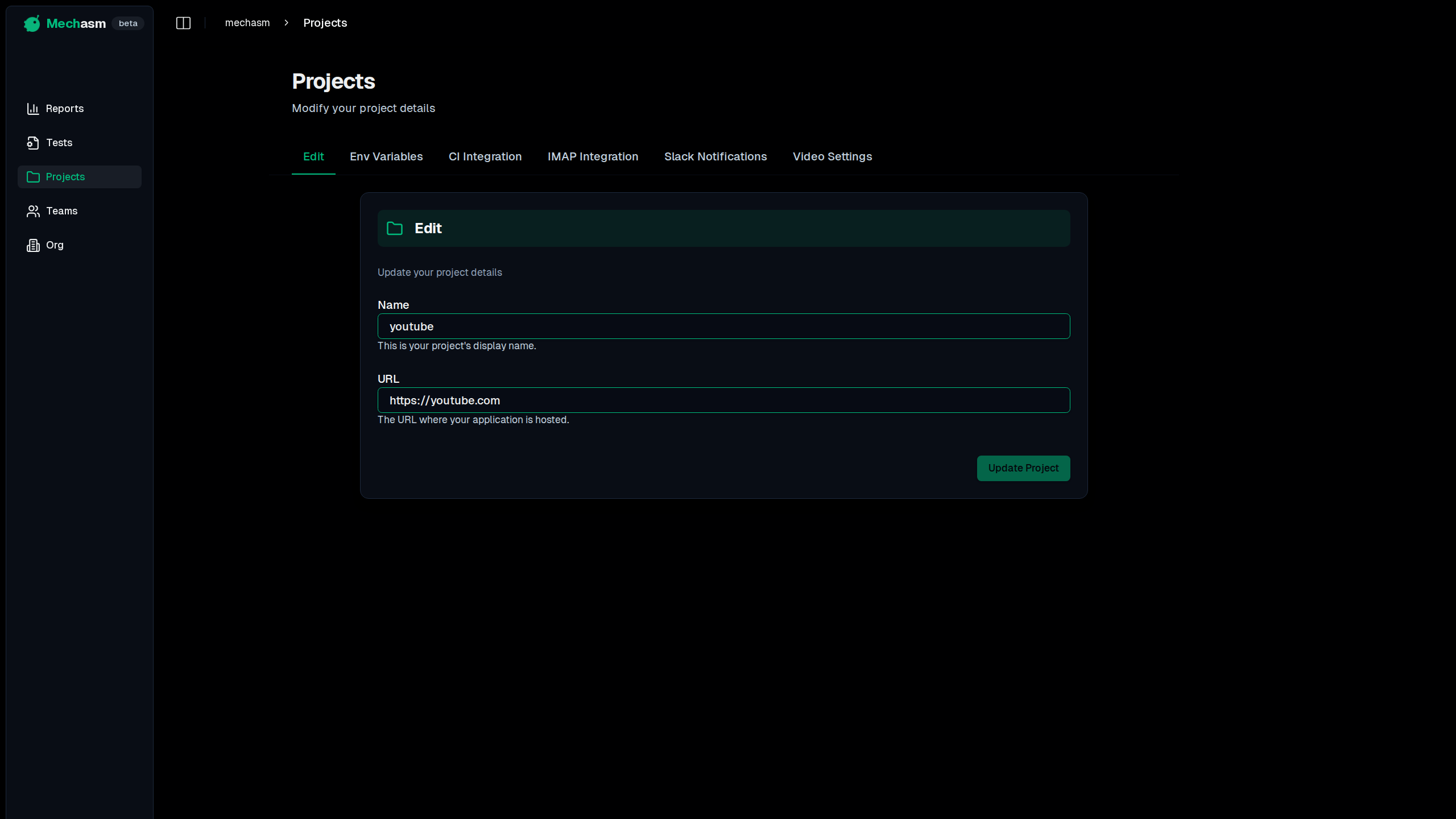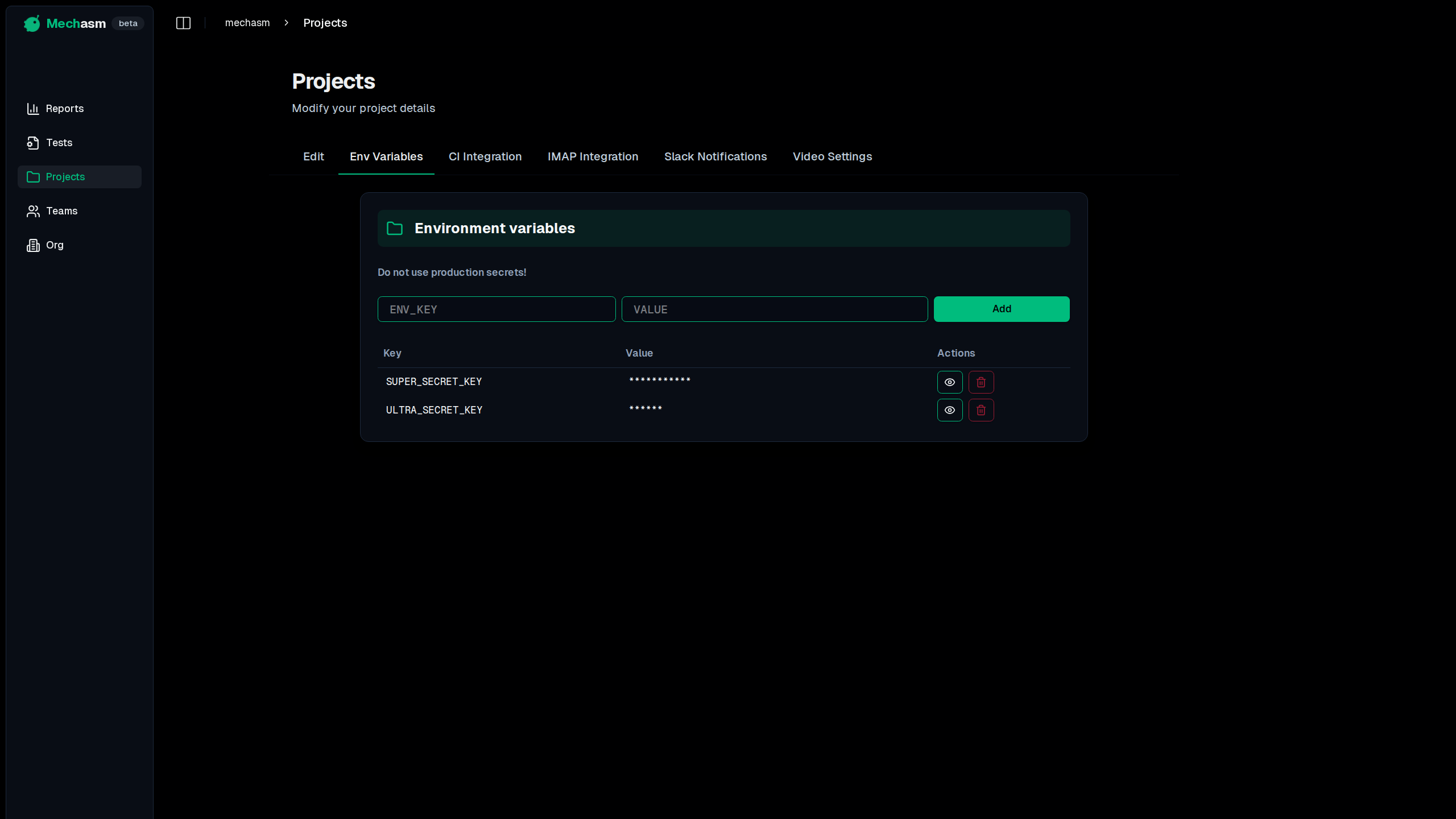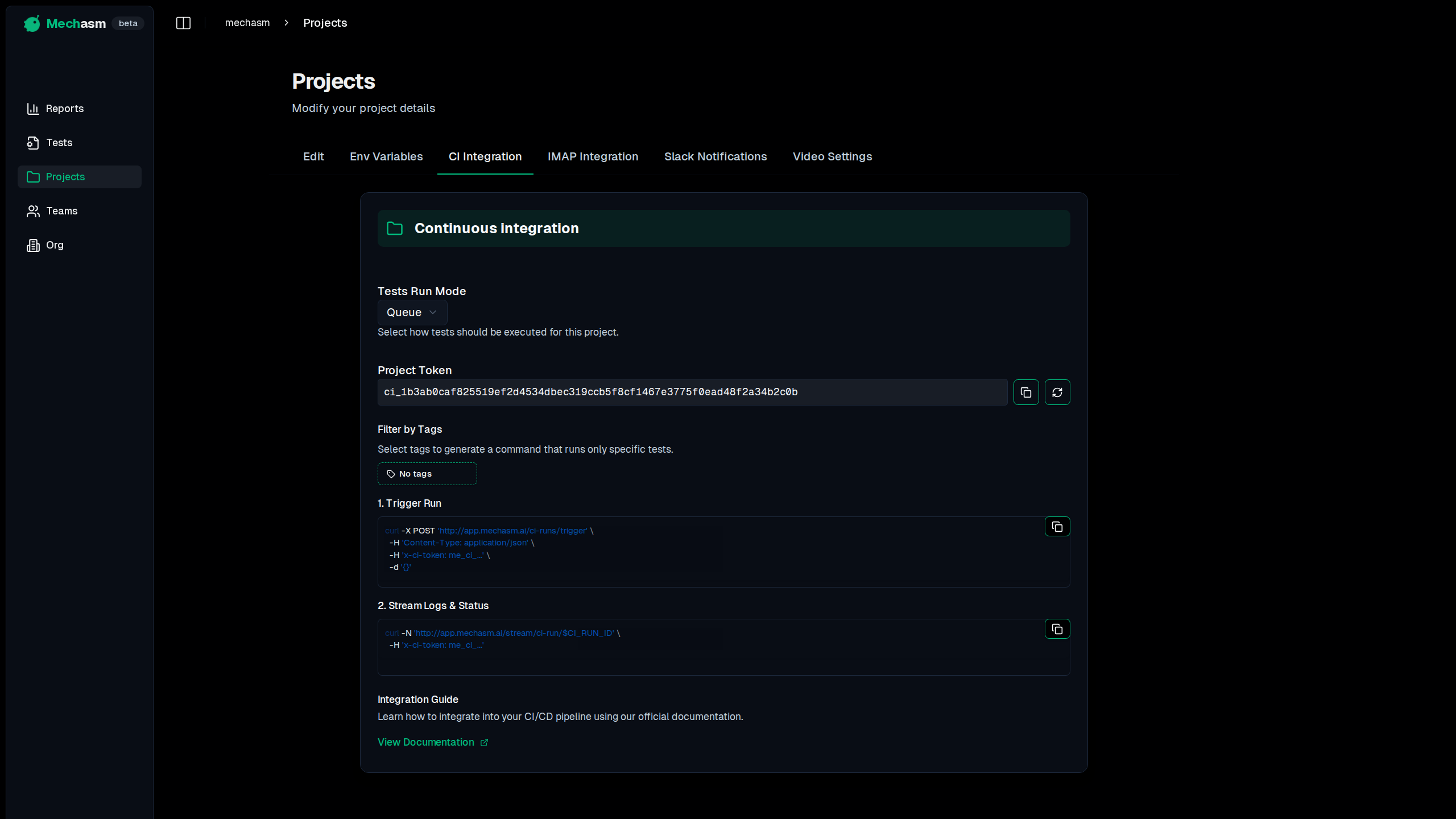Access the Project Settings page by clicking the Settings icon on any project card from the Projects dashboard. This comprehensive settings area is your control center for a specific project.
Edit Project Details
The Edit tab allows you to modify the project's basic information:
- Project Name: The name of the project.
- URL: The primary URL that your tests will be run against.
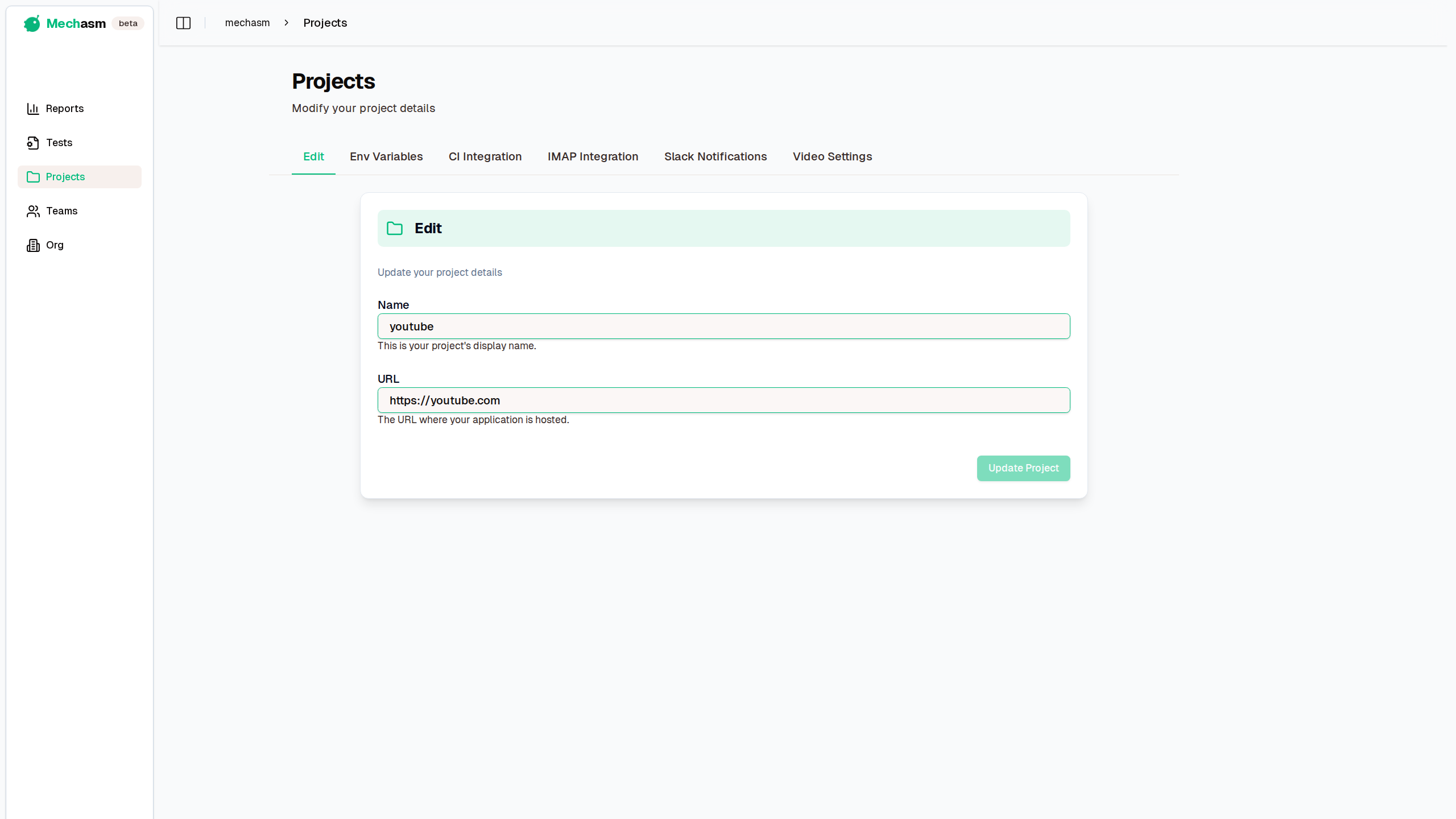
Environment Variables
The Env Variables tab is where you can manage sensitive data and configuration values for your tests without hardcoding them. You can add, edit, or delete environment variables that will be available to all tests within this project.
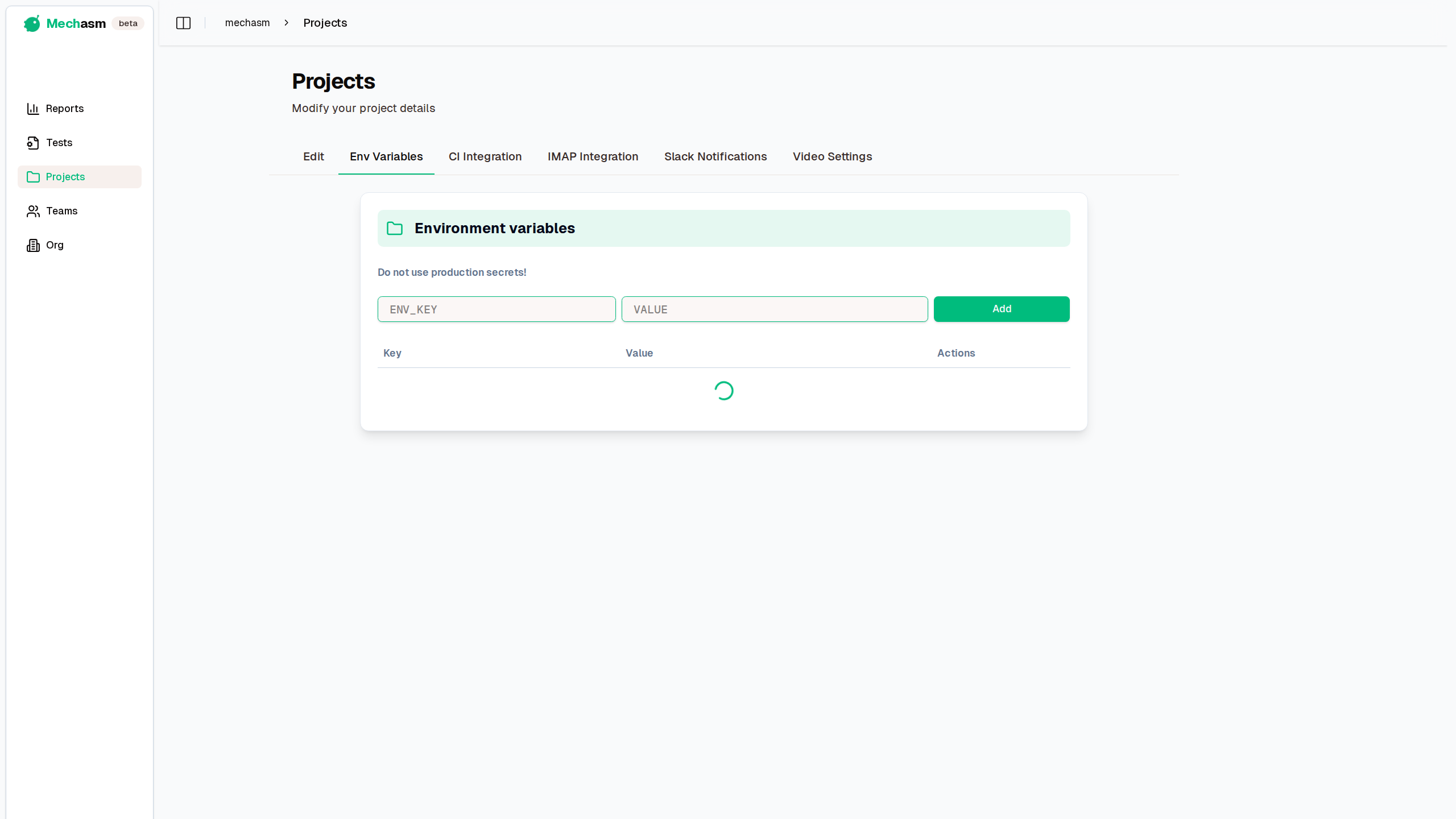
CI Integration
The CI Integration tab is where you can configure how your tests are run from your Continuous Integration (CI) pipeline and get the necessary credentials to do so.
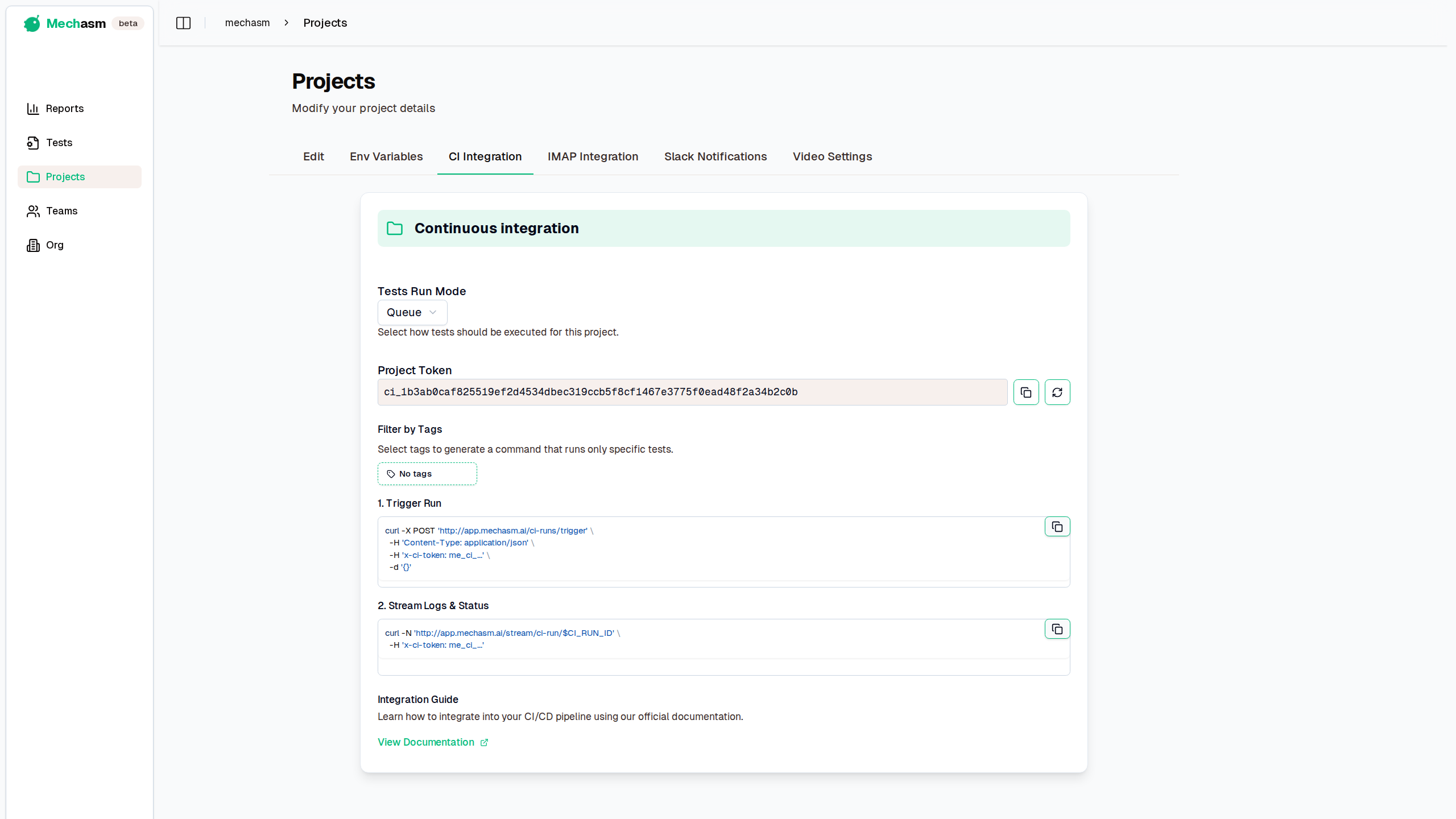
Test Run Mode
You can choose how your tests are executed:
- Queue: Tests are run one after another in the order they are received.
- Parallel: Tests are run concurrently to speed up the execution process.
Triggering Tests from CI
To run your tests from a CI environment, you'll need a CI Token. You can generate one here if you don't have one, or regenerate it if needed.
Note for Local Testing: When running this script locally, you must prepend
stdbuf -oLto thecurlcommand to disable output buffering. This is not needed in most CI environments like GitHub Actions, but is essential for local execution. Once you have a token, you can integrate tests into your CI pipeline with a simple bash script using only standard Unix tools. Here's how it works:
- Zero Dependencies: Uses only
curlandjq- available in virtually all CI environments - Real-Time Logging: Streams test logs in real-time using Server-Sent Events (SSE)
- Robust Connection: Handles long-running test suites with proper heartbeat handling
- Accurate Status: Exits with
0on success or1on failure for proper CI integration
How It Works
The script performs three steps:
- Trigger Run: Makes a POST request to start your test suite
- Stream Logs: Connects to SSE endpoint and prints logs in real-time
- Check Status: Waits for final status event and exits with appropriate code
Example GitHub Actions Integration:
- name: Run Tests
run: |
# Trigger test run
RESPONSE=$(curl -s -X POST 'https://api.mechasm.ai/ci-runs/trigger' \
-H 'Content-Type: application/json' \
-H 'x-ci-token: ${{ secrets.CI_TOKEN }}' \
-d '{}')
CI_RUN_ID=$(echo "$RESPONSE" | jq -r '.ciRunId // empty')
if [ -z "$CI_RUN_ID" ] || [ "$CI_RUN_ID" = "null" ]; then
echo "❌ Failed to start CI run"
echo "Response: $RESPONSE"
exit 1
fi
echo "🚀 CI Run ID: $CI_RUN_ID"
echo "📋 Streaming logs..."
# Stream logs and capture final status from API
PASSED=0
FAILED=0
STATUS=""
while IFS= read -r line; do
if [[ $line == data:* ]]; then
json_data="${line#data: }"
# Print log content
if echo "$json_data" | jq -e '.content' &>/dev/null; then
echo "$json_data" | jq -r '"[\(.timestamp[11:19])] [\(.testRunId[0:8])] \(.content)"'
fi
# Check for final status
if echo "$json_data" | jq -e '.type == "status"' &>/dev/null; then
PASSED=$(echo "$json_data" | jq -r '.passed // 0')
FAILED=$(echo "$json_data" | jq -r '.failed // 0')
STATUS="completed"
break
fi
fi
done < <(curl -sN --http1.1 "https://api.mechasm.ai/stream/ci-run/$CI_RUN_ID" -H "x-ci-token: ${{ secrets.CI_TOKEN }}")
# Check if we received final status
if [[ "$STATUS" != "completed" ]]; then
echo ""
echo "⚠️ Error: Did not receive final status from server"
exit 1
fi
# Check test results
if (( FAILED > 0 )); then
echo ""
echo "❌ Tests failed: $PASSED passed, $FAILED failed"
exit 1
else
echo ""
echo "✅ Tests passed: $PASSED passed"
exit 0
fi
#### Filtering with Tags
You can selectively run tests by filtering them based on tags. In the **CI Integration** tab, you'll find a tag selector that allows you to choose from all existing tags within the project.
- **Select Tags**: Click the dropdown to see a list of available tags. Select one or more tags to filter the tests that will be executed.
- **Persistent Filters**: The tags you select are saved as part of the project's settings. Any subsequent CI run triggered via the `curl` command will only execute tests matching these tags.
- **Updated `curl` Command**: The provided `curl` command automatically includes the selected tags, ensuring your CI pipeline runs the correct subset of tests.
This feature is useful for running specific test suites, such as smoke tests, regression tests, or tests for a particular feature, without executing the entire test suite.
### Video Settings
The **Video Settings** tab lets you configure how video recordings of your test runs are handled.
<DocsImage
lightSrc="https://docs.mechasm.ai/video-settings.png"
darkSrc="https://docs.mechasm.ai/video-settings-dark.png"
alt="Video Settings Tab"
/>
